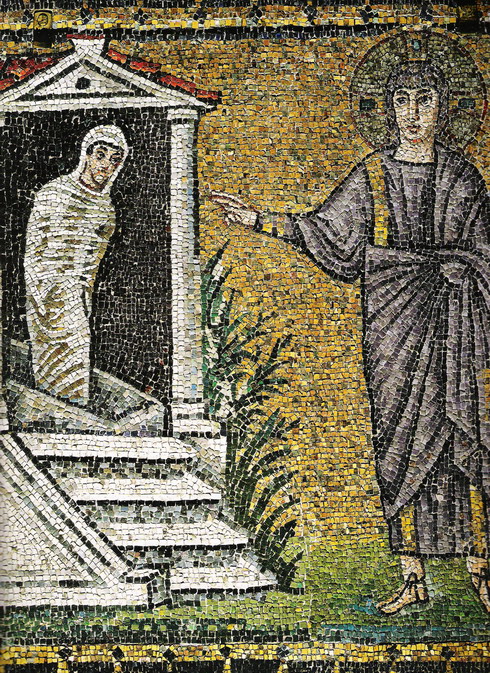John 20:19-31
Listen to Sermon
Pastor Tom Johnson, April 23, 2017
Thomas is not there when Jesus appears in his resurrected Body. He has been through too much. He is so deep in grief for the betrayal and death of his Master, that he refuses to believe—unless he can see and touch Jesus in all his glory. His faith has taken a hit—even a death-blow. And he says only the miracle of seeing and touching his resurrected Lord will restore his faith again. “Unless I see the mark of the nails in his hands, and put my finger in the mark of the nails and my hand in his side, I will not believe.” When we talk about faith from our human perspective, it appears to be a decision that you and I make to trust in God. Or it may seem like the energy we put into sustaining our spiritual journey. And like Thomas, Peter, the disciples, and all Christians, we sooner or later realize that it is a challenge to keep the faith. Perhaps that is why the Gospel reading the week after Easter is always about doubting Thomas and how he did not show up for church the Sunday following the Resurrection. Empty pews and chairs have been a problem from the beginning.
Our reading from 1st Peter reminds us that Thomas’ doubts and unbelief is all part of the normal Christian life—that even just on the heels of Easter Sunday, we can so quickly and so easily lose faith. Peter should know. He denied that he was Jesus disciple and that he even knew him three times. Peter eventually returned to his previous vocation as a fisherman. He had all but given up fishing for people as Jesus called him. Peter says that faith is “perishable.” It is not unlike going to the grocery store and seeing that sign or notice on food that says, “perishable.” Faith can turn grow dark over time. It can lose its sweetness. It can get infected and spoil. Let me be clear. I believe Peter is talking about our faith. The faith that you and I exert is like a muscle that can grow weak and exhausted. And, without the proper nutrition, hydration, and exercise it will slowly decay and die. Peter even says that our faith will be tested by fire. That is to say, the challenges we face—the suffering, loss, and our failure to live the life God has called us to—all those things can turn up the heat. It can make us feel like we cannot go on. We have failed. Or that God has failed us. We cannot pull ourselves up once we have fallen. Peter reminds us, though, that the heat is not meant for our destruction. The fire is not end of our Christian journey. Like the goldsmith, God will use trials in our lives to refine, purify, and strengthen us and our faith.

Our faith may be perishable. But our inheritance, Peter says, is imperishable, undefiled, and unfading. It is a living hope. It is a fire ignited at our baptism. It will safely bring us through the challenges and obstacles of this life to our heavenly home. Did you see our new Christ candle? It is a beautiful reminder of our living hope. The flame of God’s love, forgiveness, and promise of eternal life that was ignited at our Baptism. Faith is a gift—part of that gift-package God gives in our salvation. So we hand that flame to the newly baptized child as a reminder that they are the light of Christ to the world. They are charged to let their light shine to enrich the lives of those around them and to bring praise and glory to God. And so we light the candle during Easter. The resurrection continues to kindle afire our love and our faith. It is a living hope. It is a hope that will not disappoint us because Christ is risen indeed. Because what God begins, he brings to completion. He is the Alpha and Omega—from beginning to end he is our Savior. The fire of your faith is a gift. It will shine through the valleys of the shadow of death. It is living hope. God enlivens your hope through his Word and Spirit. He strengthens and preserves our faith by his Body and Blood. It is a living hope because we serve the true and living God. We trust in the one who overcame death and the grave—the One who still gives his nail and spear scarred body for our forgiveness of our sins and the promise of eternal life.
How blest are they who have not seen
And yet whose faith has constant been,
For they eternal life shall win.
Alleluia, alleluia, alleluia!
(“O Sons and Daughters of the King” LSB470 v. 8)


_-_James_Tissot.jpg/469px-Brooklyn_Museum_-_The_Procession_in_the_Streets_of_Jerusalem_(Le_cort%C3%A8ge_dans_les_rues_de_J%C3%A9rusalem)_-_James_Tissot.jpg)
